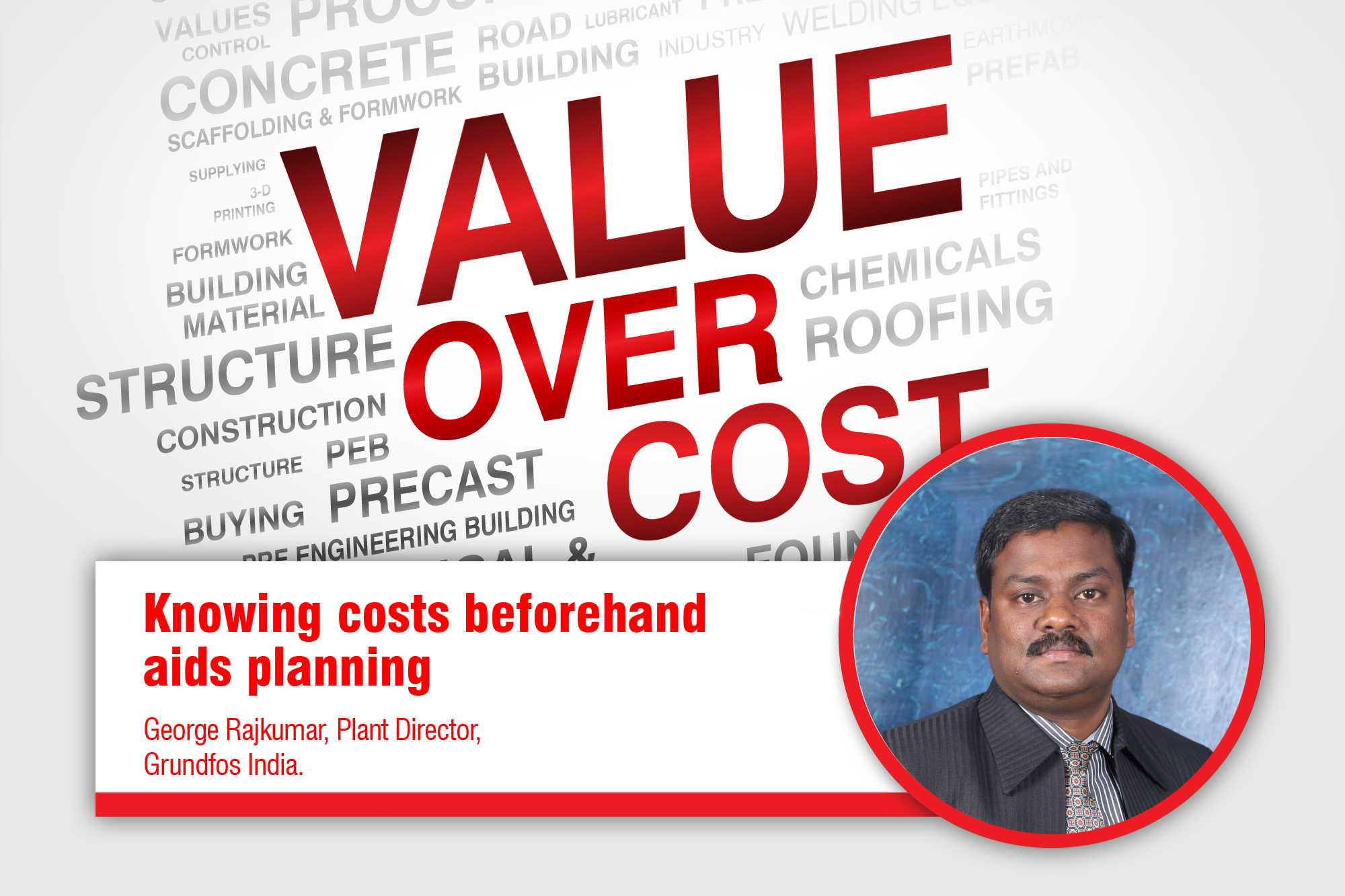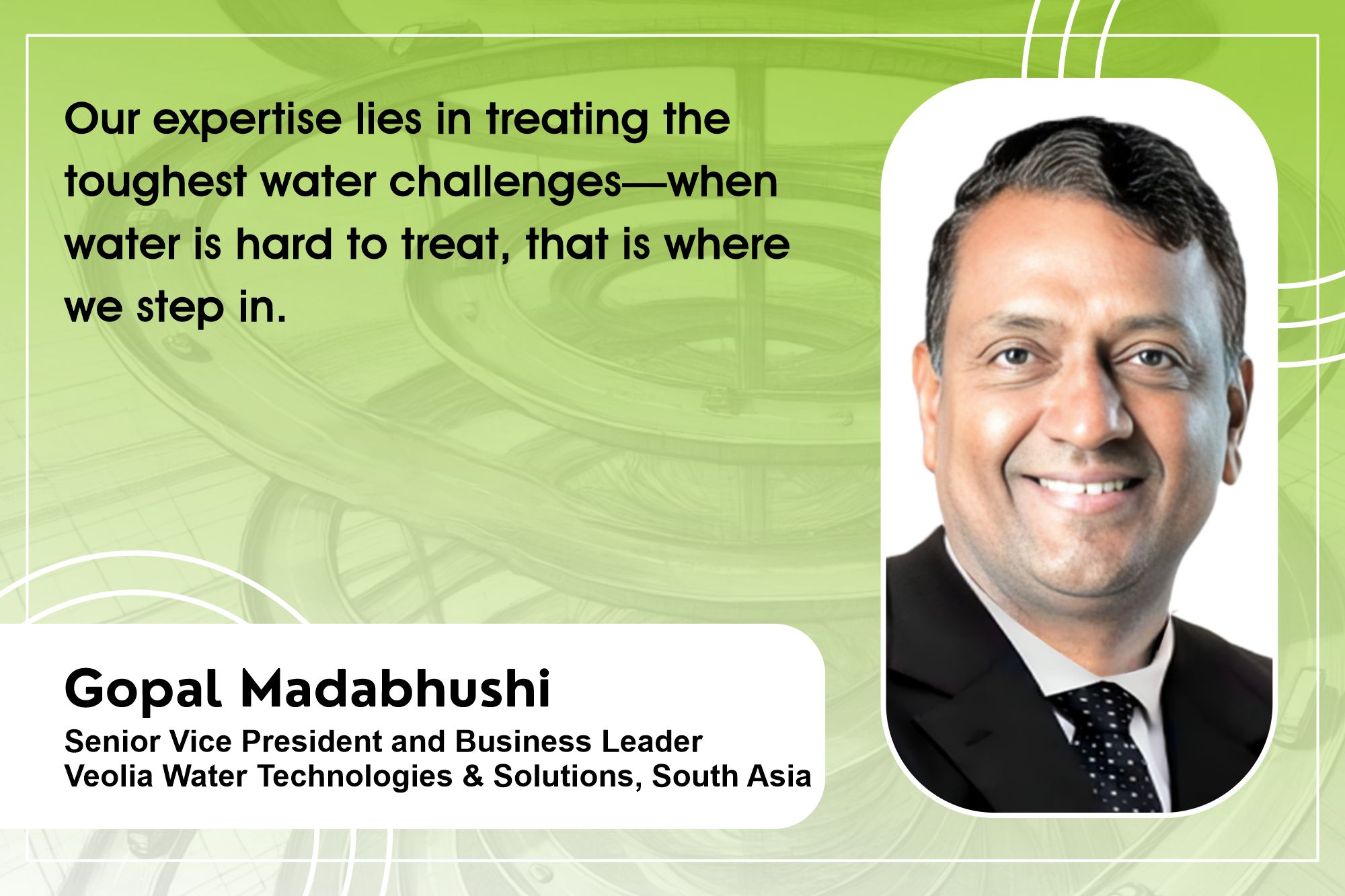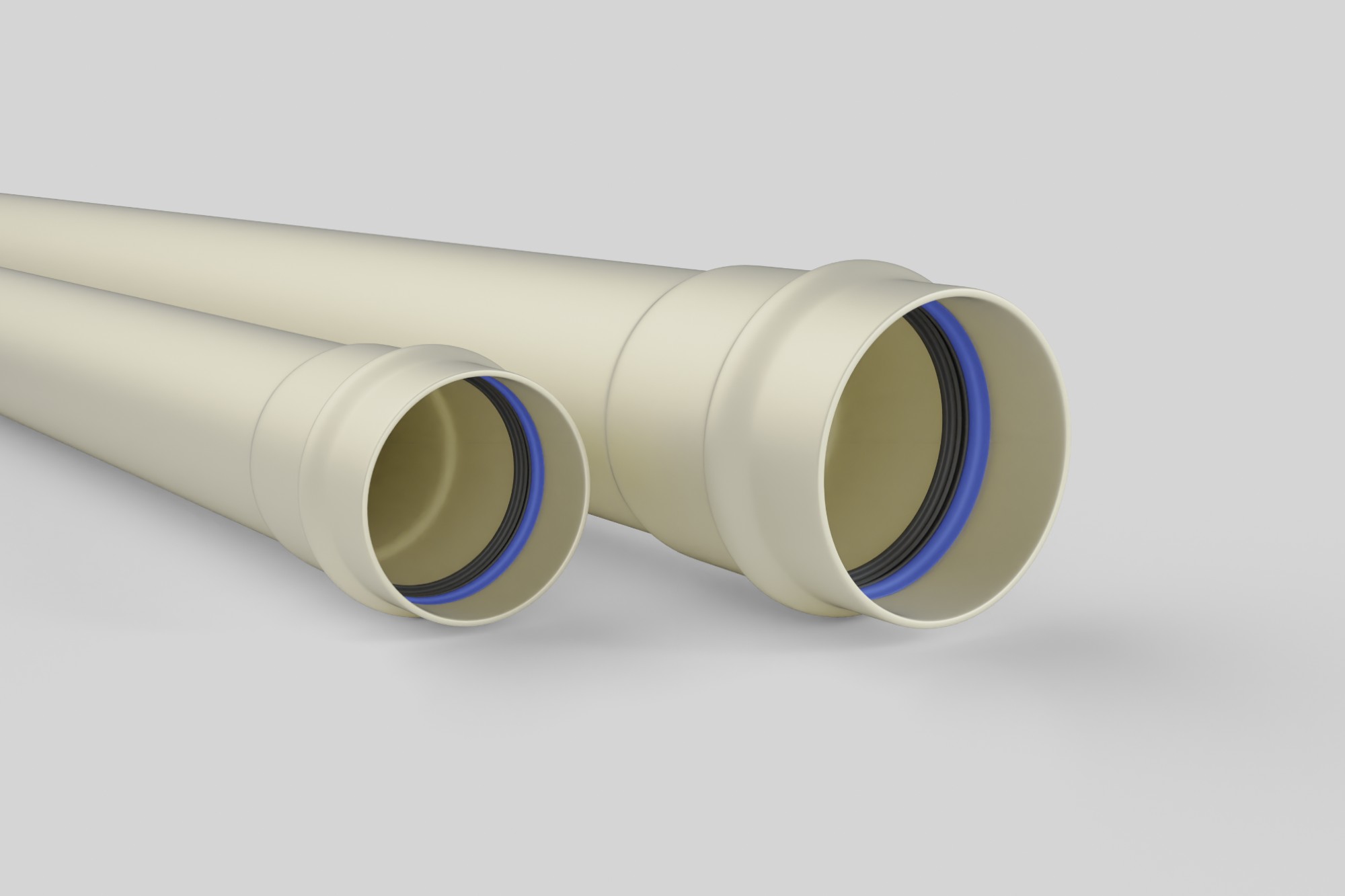Knowing costs beforehand aids planning
By Edit Team | November 1, 2018 7:10 am SHARE

Project procurement is an integral part of a business. During the earlier days, although different criteria were considered during the selection process, the majority revolved around cost-effectiveness and quality. The current scenario demands project procurement to consider other vital scenarios during the procurement process.
“Considering Grundfos’s procurement process as an example, there exists a Supplier’s Code of Conduct that has to be abided by. Apart from the usual requirements of material compliance, it covers various aspects such as human rights, where the suppliers must ensure that their factories do not employ child labour, discriminate based on gender/caste/religion, and provide humane working conditions,” says George Rajkumar, Plant Director, Grundfos India.
Another priority is the environmental side effect of running a factory. The company’s suppliers need to proactively map environmental risk and enlist methods to mitigate them. With the whole world taking to the internet, data security is a point to be considered. Data protection laws are passed by the local governments and must be seriously adhered to, he said.
Therefore, a set of new priorities have emerged along with the existing ones and they have to be considered with equal importance in the project procurement process. A company’s method of procurement and its sources talk a lot about the values it stands by. In addition, consumers have become conscious of the kind of companies they purchase from and don’t want to be seen acquiring products from companies that do not abide by the general societal norms of human rights and environment conservation.
Cost no longer the yardstick
For any product offering, the cost has always been a decision maker or breaker. No matter the quality of a product, if the price is high, the chances of its sale are low. But with the entry of data-driven metrics into the business world, there are other factors that are being considered apart from the price. When a purchase is considered, it is now possible to quantify the financial impact of a problem that is solved by the said product.
“Taking into account one such offering by Grundfos would be its latest MGE motors. Apart from the usual functions of a pump, the MGE motor series provide some serious upgrades in comparison to its competition. The pump is continuously monitored by an intelligent system which can lower the pump speed according to demand,” he said.
The industry standard is to throttle the flow of the liquid, but that does not in any way aid in conserving energy instead it exerts extra pressure on the total system. But when the pump speed is automatically reduced based on demand, there is a 40-60 per cent energy saving. This adds value to the customer by reducing their energy and maintenance cost.
“Thus, as a company, Grundfos considers value to be of great importance in our offerings,” Rajkumar says.
Innovating pumps
Grundfos is the first company to couple IoT technology with their pumps, leading to what is now called – Grundfos iSolutions. Years of R&D and expertise in the pump industry, iSolution greatly improved on several aspects. Focusing on intelligent communication between components like the drives, measurement and control systems, the solution pumps have enabled the end-users to enjoy benefits like user-friendliness, great savings, and extended customisation.
Additionally the company, Grundfos has introduced an app, SmartServ. Making lengthy emails and long phone calls a thing of the past, SmartServ provides a way for customers to easily avail the maintenance and other services for their Grundfos products. To raise a request, click a picture, fill in the details of the request and raise a service request. If the pump is retrofitted with the latest iSolution tech, assistance can be remotely provided to fix the issue. Else a service personnel would be deployed from the nearest centre.
“The launch of the SmArt Serv app is yet another effort to strengthen our commitment to providing fast and transparent service support to our customers,” Rajkumar says.
Procurement is considered effective when all the costs associated with it are known beforehand. This helps companies plan and decide if a solution they are considering is economical and adheres to their budget.
“Hidden costs can turn a deal sour. Companies that are selling must enumerate all the costs associated with a said product,” he says.
As already mentioned, it is now possible to quantify value in financial terms. It is also important to state how these numbers were arrived at. The company, in all its marketing material, informs its clients with detailed graphs and calculations of how their product conserve energy and reduce costs. Additionally, this helps them make an informed investment.
To make procurement an effective and smooth process, it is critical to provide clarity and clear-cut options for the buyer to choose from.
Encouraging local production
Make in India’s impact on the process of value-driven project procurement process is profound. The government initiative encourages companies to set up base in India and allow local production. Apart from the generic benefits of more employment and the related macroeconomic benefits, Make in India allows companies to tailor their products to tackle problems that are faced in the surrounding geographical region. This enables them to provide value and at the same time reduce costs by manufacturing the products close the points of sale.
Last year, the pump manufacturer launched its latest manufacturing facility in Ahmedabad, Gujarat run by its subsidiary Grundfos India. The facility is spread across two acres and will supply stainless steel products, boosters, and box products to India’s western and northern regions. This new facility envisioned on the ‘Make in India’ model, will also export stainless steel components to Grundfos’ global facilities in Europe, the Americas and China.
The state-of-the-art facility has been developed based on Grundfos’ designs and specifications. Staying true to the company’s sustainability focus, the Ahmedabad facility will allow Grundfos to save on transportation time and distance, thereby reducing the impact on the environment through these CO2 reductions. This also means that customers in the west and north of India will get quicker deliveries of their products as well.
Hidden costs can turn a deal sour. Companies that are selling must enumerate all costs associated with a said product.
George Rajkumar, Plant Director, Grundfos India.
Cookie Consent
We use cookies to personalize your experience. By continuing to visit this website you agree to our Terms & Conditions, Privacy Policy and Cookie Policy.




































-20240213125207.png)

























